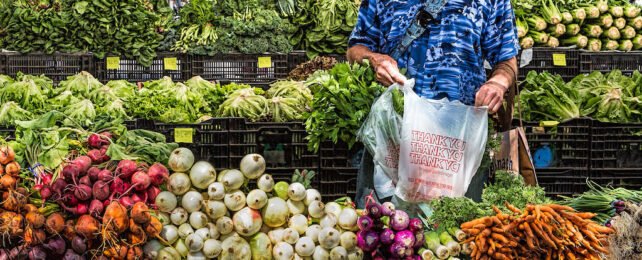Diets high in fruits, vegetables, whole grains, nuts, legumes, unsaturated fats, and low-fat dairy products, while reducing sodium, sugary drinks, trans fats, red meat, and processed meats, are associated with healthy aging, according to a recent 30-year study that involved over 100,000 individuals. The study was published in Nature Medicine and was carried out by researchers from the University of Montreal, the University of Copenhagen, and Harvard TH Chan School of Public Health.
Prior research has examined food habits in relation to particular illnesses or life expectancy. “How does diet affect people’s ability to live independently and enjoy a good quality of life as they age?” is the question our study asks from a comprehensive perspective.said co-corresponding author Frank Hu, chair of the Harvard Chan School’s Department of Nutrition and Fredrick J. Stare Professor of Nutrition and Epidemiology.
The researchers used data from the Nurses’ Health Study and the Health Professionals Follow-Up Study to examine the midlife diets and eventual health outcomes of more than 105,000 women and men ages 39-69 over 30 years. Participants regularly completed dietary questionnaires, which the researchers scored on how well participants adhered to eight healthy dietary patterns: the Alternative Healthy Eating Index (AHEI), the Alternative Mediterranean Index (aMED), the Dietary Approaches to Stop Hypertension (DASH), the Mediterranean-DASH Intervention for Neurodegenerative Delay (MIND), the healthful plant-based diet (hPDI), the Planetary Health Diet Index (PHDI), the empirically inflammatory dietary pattern (EDIP), and the empirical dietary index for hyperinsulinemia (EDIH). Each of these diets emphasises high intake of fruits, vegetables, whole grains, unsaturated fats, nuts, and legumes, and some also include low to moderate intake of healthy animal-based foods such as fish and certain dairy products. The researchers also assessed participants’ intake of ultra-processed foods, which are industrially manufactured, often containing artificial ingredients, added sugars, sodium, and unhealthy fats.
9,771 participants, or 9.3% of the sample group, aged healthily, according to the study. Overall healthy aging and its domains, such as mental, physical, and cognitive health, were associated with following any one of the healthy dietary patterns.
The leading healthy diet was the AHEI, which was developed to prevent chronic diseases. Participants in the highest quintile of the AHEI score had an 86% greater likelihood of healthy ageing at 70 years and a 2.2-fold higher likelihood of healthy ageing at 75 years compared to those in the lowest quintile of the AHEI score. The AHEI diet reflects a diet rich in fruits, vegetables, whole grains, nuts, legumes, and healthy fats and low in red and processed meats, sugar-sweetened beverages, sodium, and refined grains. Another leading diet for healthy ageing was the PHDI, which considers both human and environmental health by emphasising plant-based foods and minimising animal-based foods.
Higher intake of ultra-processed foods, especially processed meat and sugary and diet beverages, was associated with lower chances of healthy ageing.












